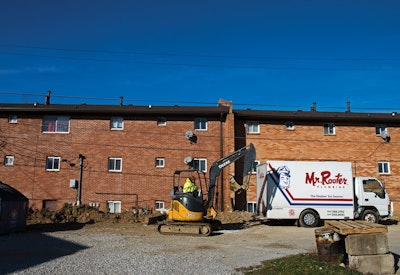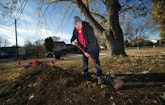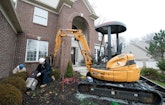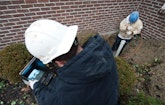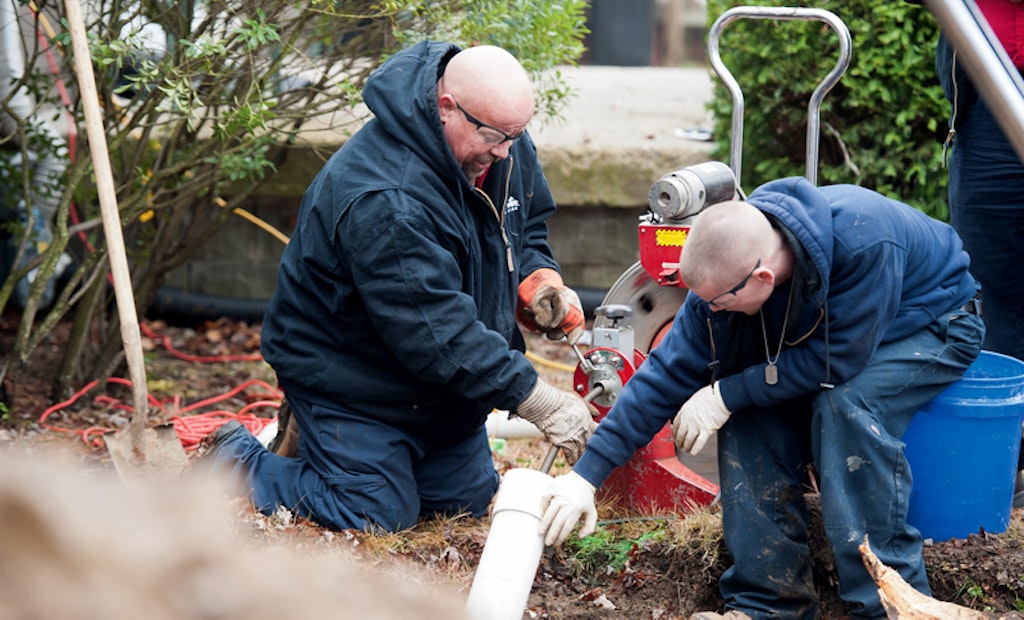
Interested in Cleaning?
Get Cleaning articles, news and videos right in your inbox! Sign up now.
Cleaning + Get AlertsWhen Bob Gallup purchased the Greater Indianapolis and Central Indiana Mr. Rooter territory, his business background helped him understand the importance of planning, perseverance and procedures.
Gallup first learned about the franchise through a business broker. The owner wanted to sell the territory in the metropolitan area and continue doing business in an outlying region where he would maintain the office and facilities. So, Gallup needed to hire personnel and establish a new office. He purchased new computers, vehicles and fundamental pieces of equipment, including a jetter that has turned out to be the company’s workhorse.
“This also required brand new marketing, new signage, new phone numbers,” he says. “But particularly new technology.”
The business was in full swing by August 2012.
Perils and parallels
Gallup had spent several years in the home security business and saw similarities with the plumbing business, both of which involve technicians going to people’s homes to perform a service.
“To me this was a good fit with what I was familiar with,” he says.
Gallop learned early on that he needed someone on hand to troubleshoot and to be a technical leader for service technicians.
“This was the first time I had invested personally in a business,” he says. “In a situation like mine, they say it will take twice as long to reach your goals if you are in a new industry, and there is truth in that. Initially, we did not have that strong support out in the field for our service people. Had I known how important this was I would have probably saved time and money, but fortunately my problem was solved when Robert Wilhelm walked into my office.”
Wilhelm had a strong background in the industry, and Gallup considers him a godsend. Whilhelm knew the Mr. Rooter system and told Gallup he would help develop the business.
“In the world I come from, they say that before someone earns a key role, they are probably doing that role,” Gallup says. “One day I realized that I needed to understand what Robert was doing for me. That he was my senior plumbing specialist. The other guys are going to him with problems. He is the go-to guy. I thought about that and we formalized his role in the company. He is now my field manager. That means he goes around and helps the plumbers with price quotes, scope of work, estimates and communication with customers. And he will show up to do the physical work and interact with local inspectors. All is based on demand. He will install a waterline, do sewer repair, lay concrete, re-pipe a home and help me put together a complex bid.”
Another key member of the developing management team was a client-turned-associate, John Leighty, who brought a totally new – but important – skill to the firm. Leighty is responsible for bathroom remodels and other work that requires artistic design or tile work. The two men are a strong team, and together, they have helped the company grow by reaching a new market.
Skill set
Several of Gallup’s technicians work as apprentices in a four-year program offered by Mechanical Skills Inc. in Indianapolis.
“The finest in management cannot perform without talented technicians to send into the field,” Gallup says. “I believe in helping my associates gain further education. It is important because whatever happens in the economy, the smarter you are, the more you know about your business, the more you contribute to your family, your employer and yourself. My goal is for my employees to be the best trained to contribute to our team. I want them to have the best in accomplishment and financial rewards – to gain confidence and credentials.”
After the interview process, Gallup has a candidate go on a ride-along for two days with designated technician Travis Karch, a good listener and trainer who gives an evaluation. Then, each new hire is given a 90-day provisionary period.
Ramping up
The addition of pipe bursting gave the company the ability to provide the latest in technology and a trenchless option for clients who don’t want to tear up landscaping or a driveway to replace a sewer line. While the concept is not universally understood in the region, Gallup has kept the HammerHead PB30G2 system busy on both residential and commercial jobs.
“The typical client does not understand what goes on underground, or how the home connects to the city sewer,” he says. “We take them through the fundamentals, and why in their situation this is a good solution. We will explain why the pipe is separated. Why there are roots. Hammerhead has videos that are helpful. We can give our clients referrals. They learn the advantages – that in the end we will fuse 10- or 20-foot lengths of pipe together. The fusing makes a strong connection similar to a broken bone that heals and is very strong, and thus we can give a good warranty.”
Gallup says local residential jobs are usually about 80 feet long, 10 to 12 feet deep and typically go under a sidewalk, front walkway or driveway.
“When you do that, you cross utility lines, gas and water lines and electric lines,” he says. “With pipe bursting, you minimize the chances of hitting those utilities.”
For commercial clients, pipe bursting offers extensive advantages. Gallup bid on a job to repair a 550-foot line at an apartment complex, and negotiated through a long bid process with the owner, a regular customer.
“The previous owner of the building had done some spot repairs, and what they had was 500 feet with a mix of PVC and clay tile – all different lengths and never backfilled. Never had any of this been inspected. There were seven lateral lines, and one had never been connected to the sewer main.
“It was a challenging job in a tight work space – about 15 feet wide and 8 feet deep with a 1 percent fall. Utility locates continued to change. We found pipes 3 inches in diameter perpendicular to the trench, and nobody had any record as to what was in those pipes. The job was in a hole. We had to come up with a way to do it. Wilhelm’s leadership helped devise a solution.”
Gallup says they did about half the job using excavation, but it became so difficult they had to tell the client they couldn’t honor the contract. One of Mr. Rooter’s key values is that you must inform all parties involved as soon you discover you cannot honor a contract.
The client found the situation difficult to process, and Gallup had to bring in the right resources and explain the problems at every stage.
“The client shook my hand, and said that as we had been forthwith and honest at every turn in the past, they would proceed with the project even though the cost had doubled,” Gallup says. “This was validation for us. HammerHead was also available to help us throughout the process.”
Fitting out
Clay tile is the predominant sewer lateral material in their region. Most sewers are gravity fed, and 75 percent of the homes have a basement, so lines tend to be deep.
The fleet consists of eight Chevrolet 2500 Express vans, a 2005 Ford diesel dump truck and a 2007 Isuzu box truck used to stock inventory for sewer repair jobs, including pipe bursting. Gallup has a John Deere mini-excavator, plus other sales vehicles.
Critical equipment includes four RIDGID electric jetters, two RIDGID pushrod cameras and two more from Spartan Tool. Gallup also has a John Bean commercial jetter (2,000 psi/18 gpm) that has been adjusted for residential use.
Building with the best
Early on, Gallup realized how important having a skilled professional answer the phone and make initial contact was in building a long-term relationship. He says he enjoys nurturing those relationships and taking care of his customer base.
“With our 17 employees, eight technicians and support staff, I believe we have formed a good foundation,” he says. “I stepped out of the corporate world, and now I can put my head on my own pillow every night, and one of the best unintended consequences is that my son Adam, who is 21, is working with me. He is in the business. In the course of things he has an opportunity to figure out what he wants to do with his life. But he has learned this business.
“The first year we spent building our technical core. As that is established we are bringing in younger people and teaching them the Mr. Rooter way. Showing how they can be the best and deliver on the Mr. Rooter brand promise. We see it as a mix of the tried and true, young and new.”
